

About
In 2016, the 17 Sustainable Development Goals (SDGs) of the 2030 Agenda for Sustainable Development officially came into force. With these interconnected Goals, Member States of the United Nations are mobilizing efforts to end all forms of poverty, fight inequalities, tackle environmental issues and address many other key sustainability objectives including protecting life below water.
The SDGs build on the successes of the Millennium Development Goals and call for action by all countries to promote prosperity while protecting the planet. They serve as a compass for aligning countries’ plans with their global commitments.
PADI AWARE Foundation™’s conservation strategy for a return to a Clean and Healthy Ocean, including programs like Dive Against Debris® - the organization’s flagship citizen science program, is in alignment with the SDGs in a number of target areas. This interactive infographic highlights those areas and PADI AWARE Foundation’s continued support of the 2030 Agenda for Sustainable Development.
Explore the graphic to see how taking action with PADI AWARE Foundation for a clean and healthy ocean can help support the implementation of the UN’s Sustainable Development Goals. Achieving the SDGs is critical to building an inclusive, sustainable and resilient future for people and planet.

By 2030, end hunger and ensure access by all people, in particular the poor and people in vulnerable situations, including infants, to safe, nutritious and sufficient food all year round.

Marine debris negatively impacts the health and functionality of ecosystems and thus can impair fish stocks which in turn, threatens food security.
Animals can be harmed, injured and killed by entanglement in, or ingestion of, marine debris. Yielding data regarding the fate of animals encountered during Dive Against Debris® surveys, PADI AWARE Foundation is highlighting the impacts marine debris has on species of marine life that are vital for food security in vulnerable coastal communities.

By 2030, ensure sustainable food production systems and implement resilient agricultural practices that increase productivity and production, that help maintain ecosystems, that strengthen capacity for adaptation to climate change.

By removing debris that has entered the marine environment, PADI AWARE Foundation is contributing to the overall improved health and resilience of ecosystems.
PADI AWARE Foundation’s Healthy Ocean Strategy includes working with local communities to help protect critical coastal habitats such as coral reef systems, which have proven benefits in ensuring the sustainability of subsistence fisheries that rely on them.

By 2030, substantially reduce the number of deaths and illnesses from hazardous chemicals and air, water and soil pollution and contamination.

Marine debris poses a direct hazard to humans through entanglement and / or ingestion – this could be directly or indirectly.
Through a commitment to accelerate marine debris removal and reporting through Dive Against Debris®, PADI AWARE Foundation is encouraging the global dive community to make Every Dive A Survey Dive which includes reporting debris-free sites. With strategic collaboration, PADI AWARE Foundation’s Clean Ocean Strategy is helping ensure that there is less debris in the marine environment posing a hazard to human health and wellbeing.

By 2030, improve water quality by reducing pollution, eliminating dumping and minimizing release of hazardous chemicals and materials, halving the proportion of untreated wastewater and substantially increasing recycling and safe reuse globally.

Marine debris items, particularly plastics, break up into smaller and smaller pieces of rubbish and have the ability to leach their toxic chemicals into the marine environment. They also act as a vector, adsorbing and transporting other harmful toxins.
Removing debris and working on solutions towards preventing marine debris will contribute to reducing pollution and minimizing the release of hazardous materials.

By 2020, substantially reduce the proportion of youth not in employment, education or training.

Collaborating with commercial ecotourism operators, PADI AWARE Foundation is assisting with the development and integration of local community training programs in order to provide key skills for continued employment within the global dive industry.

By 2030, devise and implement policies to promote sustainable tourism that creates jobs and promotes local culture and products.

Sharks and rays are culturally significant icons in many countries, and responsible shark and ray related ecotourism can be a powerful, complementary conservation strategy. It can also serve as an important supplementary source of income benefiting operators and the local communities alike.
The Responsible Shark and Ray Tourism: A Guide to Best Practice, developed in partnership with the Manta Trust and WWF, uses the best available science to help operators create specific guidelines appropriate to their local circumstances and shark and ray tourism experiences that are safe, sustainable and conservation-focused, while also actively promoting a source of alternative livelihood for local communities.

By 2030, achieve the sustainable management and efficient use of natural resources.

Effectively managing rubbish and improving legislation to prevent debris entering the ocean in the first place will assist in conserving marine environments and supporting ecosystem services.
Through Dive Against Debris®, data regarding the types and quantities of marine litter items in time and space is being captured as well as debris-free sites. This information can be used to assist nations to identify marine debris hotspots and inform where management and legislation needs to be prioritized in order to prevent rubbish entering the ocean.
Sustainable management of fish stocks is also paramount to achieving this SDG target. PADI AWARE Foundation is supporting sustainable fisheries through their work with Regional Fisheries Management Organizations (RFMOs) advocating for sustainable catch limits on shark and rays.

By 2020, achieve the environmentally sound management of chemicals and all wastes throughout their life cycle and significantly reduce their release to air, water and soil in order to minimize their adverse impacts on human health and the environment.

Through Dive Against Debris®, PADI AWARE Foundation has data regarding the types of debris items found in the marine environment as well as debris-free sites, which can be used to highlight where management should be prioritized.
Additionally, the most prolific items in the marine environment can be identified at various geographical scales so that we can work with nations as well as manufacturers and producers to look at the front end design of products and shift to a closed-loop, circular economy.

By 2030, substantially reduce waste generation through prevention, reduction, recycling and reuse.

Dive Against Debris® highlights the underwater marine debris issue. The data can be used to help inform necessary prevention measures and help educate the community as to where individuals can reduce their waste footprint – Adopt A Dive Site™ encourages monthly removal and recording of marine debris. Debris-free sites are also reported. The data can then support local change. Through supply chain goals, PADI AWARE Foundation is also looking at ways in which to up-cycle (reuse) debris items.

Encourage companies, especially large and transnational companies, to adopt sustainable practices and to integrate sustainability information into their reporting cycle.

Through supply chain goals, PADI AWARE Foundation is committed to not buy or distribute any single-use plastic products or packaging in their operations. Products’ viability is determined based on a full Life Cycle Analysis, including adhering to ISO 1400 and SDG goals and principles. Additionally, PADI AWARE Foundation is committed to working with countries to help them identify where they may need to focus their efforts, based on what is reported through Dive Against Debris®.

By 2030, ensure that people everywhere have the relevant information and awareness for sustainable development and lifestyles in harmony with nature.

Countries / Nations and local communities can use and implement PADI AWARE Foundation conservation resources, courses & programs such as Dive Against Debris®, 10 Tips for Divers to Protect the Ocean Planet, AWARE Shark Conservation Diver, and Responsible Shark and Ray Tourism: A Guide to Best Practice to create local change for global impact.

By 2025, prevent and significantly reduce marine pollution of all kinds, in particular from land-based activities, including marine debris and nutrient pollution.

PADI AWARE Foundation is committed to addressing the global marine debris crisis from an underwater perspective through citizen science and community engagement (#OceanAction17638). Countries can use Dive Against Debris® data to advance policies and legislation at national and international levels. As an active GGGI member, PADI AWARE Foundation is also committed to tackling abandoned, lost and otherwise discarded fishing gear on a global scale (#OceanAction14840).

By 2020, sustainably manage and protect marine and coastal ecosystems to avoid significant adverse impacts, including by strengthening their resilience, and taking action for their restoration in order to achieve healthy and productive oceans.

Removing marine debris from the ocean will directly assist in strengthening ecosystem resilience as the debris is no longer in the marine environment to smother habitats and adversely affect marine life.
Through work at RFMOs, PADI AWARE Foundation is providing a voice for the public to ensure marine resources are managed and harvested sustainably.

Increase scientific knowledge, develop research capacity and transfer marine technology, in order to improve ocean health and to enhance the contribution of marine biodiversity to the development of developing countries.

PADI AWARE Foundation is partnering with scientists and other key organizations to analyze the Dive Against Debris® dataset in order to inform further research and policy change, advancing our knowledge and understanding regarding marine debris.

By 2020, effectively regulate harvesting and end overfishing, illegal, unreported and unregulated fishing and destructive fishing practices and implement science-based management plans, in order to restore fish stocks in the shortest time possible, at least to levels that can produce maximum sustainable yield as determined by their biological characteristics.

Together with the Shark League - a coalition focused on responsible regional conservation of sharks and rays - PADI AWARE Foundation is working towards securing science-based shark and ray catch limits, strict protections for endangered species, and strong, enforceable bans on shark finning at a regional level (#OceanAction17226).
PADI AWARE Foundation is committed to working with GGGI partners to support the adoption of a Best Practice Framework for the Management of Fishing Gear as well as promoting ghost gear reduction measures at RFMOs.

By 2020, ensure the conservation, restoration and sustainable use of terrestrial and inland freshwater ecosystems and their services, in particular forests, wetlands, mountains and drylands, in line with obligations under international agreements.

Rubbish compromises the restoration and sustainability of freshwater ecosystems. Dive Against Debris® yields data in these environments – identifying types and quantities of debris items found and removed. Debris-free sites are also reported. In order to ensure and measure the conservation, restoration and sustainable use, baseline data is essential.

Enhance the global partnership for sustainable development, to support the achievement of the sustainable development goals in all countries, in particular developing countries.

As an organization, PADI AWARE Foundation forges strategic multi-stakeholder partnerships in order to return to a clean and healthy ocean.
With regards to supporting countries in achieving this goal, we can form effective partnerships with governments and other relevant governing bodies in order to support nations in tracking their progress towards achieving the SDGs.


POVERTY
HUNGER
AND WELL-BEING
EDUCATION
EQUALITY
AND SANITATION
CLEAN ENERGY
ECONOMIC GROWTH
AND INFRASTRUCTURE
INEQUALITIES
AND COMMUNITIES
CONSUMPTION
AND PRODUCTION
ACTION
BELOW WATER
ON LAND
AND STRONG
INSTITUTIONS
FOR THE GOALS
By 2030, end hunger and ensure access by all people, in particular the poor and people in vulnerable situations, including infants, to safe, nutritious and sufficient food all year round.
Marine debris negatively impacts the health and functionality of ecosystems and thus can impair fish stocks which in turn, threatens food security.
Animals can be harmed, injured and killed by entanglement in, or ingestion of, marine debris. Yielding data regarding the fate of animals encountered during Dive Against Debris® surveys, PADI AWARE Foundation is highlighting the impacts marine debris has on species of marine life that are vital for food security in vulnerable coastal communities.
By 2030, ensure sustainable food production systems and implement resilient agricultural practices that increase productivity and production, that help maintain ecosystems, that strengthen capacity for adaptation to climate change.
By removing debris that has entered the marine environment, PADI AWARE Foundation is contributing to the overall improved health and resilience of ecosystems.
PADI AWARE Foundation’s Healthy Ocean Strategy includes working with local communities to help protect critical coastal habitats such as coral reef systems, which have proven benefits in ensuring the sustainability of subsistence fisheries that rely on them.
By 2030, substantially reduce the number of deaths and illnesses from hazardous chemicals and air, water and soil pollution and contamination.
Marine debris poses a direct hazard to humans through entanglement and / or ingestion – this could be directly or indirectly.
Through a commitment to accelerate marine debris removal and reporting through Dive Against Debris®, PADI AWARE Foundation is encouraging the global dive community to make Every Dive A Survey Dive which includes reporting debris-free sites. With strategic collaboration, PADI AWARE Foundation’s Clean Ocean Strategy is helping ensure that there is less debris in the marine environment posing a hazard to human health and wellbeing.
By 2030, improve water quality by reducing pollution, eliminating dumping and minimizing release of hazardous chemicals and materials, halving the proportion of untreated wastewater and substantially increasing recycling and safe reuse globally.
Marine debris items, particularly plastics, break up into smaller and smaller pieces of rubbish and have the ability to leach their toxic chemicals into the marine environment. They also act as a vector, adsorbing and transporting other harmful toxins.
Removing debris and working on solutions towards preventing marine debris will contribute to reducing pollution and minimizing the release of hazardous materials.
By 2020, substantially reduce the proportion of youth not in employment, education or training.
Collaborating with commercial ecotourism operators, PADI AWARE Foundation is assisting with the development and integration of local community training programs in order to provide key skills for continued employment within the global dive industry.
By 2030, devise and implement policies to promote sustainable tourism that creates jobs and promotes local culture and products.
Sharks and rays are culturally significant icons in many countries, and responsible shark and ray related ecotourism can be a powerful, complementary conservation strategy. It can also serve as an important supplementary source of income benefiting operators and the local communities alike.
The Responsible Shark and Ray Tourism: A Guide to Best Practice, developed in partnership with the Manta Trust and WWF, uses the best available science to help operators create specific guidelines appropriate to their local circumstances and shark and ray tourism experiences that are safe, sustainable and conservation-focused, while also actively promoting a source of alternative livelihood for local communities.
By 2030, achieve the sustainable management and efficient use of natural resources.
Effectively managing rubbish and improving legislation to prevent debris entering the ocean in the first place will assist in conserving marine environments and supporting ecosystem services.
Through Dive Against Debris®, data regarding the types and quantities of marine litter items in time and space is being captured as well as debris-free sites. This information can be used to assist nations to identify marine debris hotspots and inform where management and legislation needs to be prioritized in order to prevent rubbish entering the ocean.
Sustainable management of fish stocks is also paramount to achieving this SDG target. PADI AWARE Foundation is supporting sustainable fisheries through their work with Regional Fisheries Management Organizations (RFMOs) advocating for sustainable catch limits on shark and rays.
By 2020, achieve the environmentally sound management of chemicals and all wastes throughout their life cycle and significantly reduce their release to air, water and soil in order to minimize their adverse impacts on human health and the environment.
Through Dive Against Debris®, PADI AWARE Foundation has data regarding the types of debris items found in the marine environment as well as debris-free sites, which can be used to highlight where management should be prioritized.
Additionally, the most prolific items in the marine environment can be identified at various geographical scales so that we can work with nations as well as manufacturers and producers to look at the front end design of products and shift to a closed-loop, circular economy.
By 2030, substantially reduce waste generation through prevention, reduction, recycling and reuse.
Dive Against Debris® highlights the underwater marine debris issue. The data can be used to help inform necessary prevention measures and help educate the community as to where individuals can reduce their waste footprint – Adopt A Dive Site™ encourages monthly removal and recording of marine debris. Debris-free sites are also reported. The data can then support local change. Through supply chain goals, PADI AWARE Foundation is also looking at ways in which to up-cycle (reuse) debris items.
Encourage companies, especially large and transnational companies, to adopt sustainable practices and to integrate sustainability information into their reporting cycle.
Through supply chain goals, PADI AWARE Foundation is committed to not buy or distribute any single-use plastic products or packaging in their operations. Products’ viability is determined based on a full Life Cycle Analysis, including adhering to ISO 1400 and SDG goals and principles. Additionally, PADI AWARE Foundation is committed to working with countries to help them identify where they may need to focus their efforts, based on what is reported through Dive Against Debris®.
By 2030, ensure that people everywhere have the relevant information and awareness for sustainable development and lifestyles in harmony with nature.
Countries / Nations and local communities can use and implement PADI AWARE Foundation conservation resources, courses & programs such as Dive Against Debris®, 10 Tips for Divers to Protect the Ocean Planet, AWARE Shark Conservation Diver, and Responsible Shark and Ray Tourism: A Guide to Best Practice to create local change for global impact.
By 2025, prevent and significantly reduce marine pollution of all kinds, in particular from land-based activities, including marine debris and nutrient pollution.
PADI AWARE Foundation is committed to addressing the global marine debris crisis from an underwater perspective through citizen science and community engagement (#OceanAction17638). Countries can use Dive Against Debris® data to advance policies and legislation at national and international levels. As an active GGGI member, PADI AWARE Foundation is also committed to tackling abandoned, lost and otherwise discarded fishing gear on a global scale (#OceanAction14840).
By 2020, sustainably manage and protect marine and coastal ecosystems to avoid significant adverse impacts, including by strengthening their resilience, and taking action for their restoration in order to achieve healthy and productive oceans.
Removing marine debris from the ocean will directly assist in strengthening ecosystem resilience as the debris is no longer in the marine environment to smother habitats and adversely affect marine life.
Through work at RFMOs, PADI AWARE Foundation is providing a voice for the public to ensure marine resources are managed and harvested sustainably.
Increase scientific knowledge, develop research capacity and transfer marine technology, in order to improve ocean health and to enhance the contribution of marine biodiversity to the development of developing countries.
PADI AWARE Foundation is partnering with scientists and other key organizations to analyze the Dive Against Debris® dataset in order to inform further research and policy change, advancing our knowledge and understanding regarding marine debris.
By 2020, effectively regulate harvesting and end overfishing, illegal, unreported and unregulated fishing and destructive fishing practices and implement science-based management plans, in order to restore fish stocks in the shortest time possible, at least to levels that can produce maximum sustainable yield as determined by their biological characteristics.
Together with the Shark League - a coalition focused on responsible regional conservation of sharks and rays - PADI AWARE Foundation is working towards securing science-based shark and ray catch limits, strict protections for endangered species, and strong, enforceable bans on shark finning at a regional level (#OceanAction17226).
PADI AWARE Foundation is committed to working with GGGI partners to support the adoption of a Best Practice Framework for the Management of Fishing Gear as well as promoting ghost gear reduction measures at RFMOs.
By 2020, ensure the conservation, restoration and sustainable use of terrestrial and inland freshwater ecosystems and their services, in particular forests, wetlands, mountains and drylands, in line with obligations under international agreements.
Rubbish compromises the restoration and sustainability of freshwater ecosystems. Dive Against Debris® yields data in these environments – identifying types and quantities of debris items found and removed. Debris-free sites are also reported. In order to ensure and measure the conservation, restoration and sustainable use, baseline data is essential.
Enhance the global partnership for sustainable development, to support the achievement of the sustainable development goals in all countries, in particular developing countries.
As an organization, PADI AWARE Foundation forges strategic multi-stakeholder partnerships in order to return to a clean and healthy ocean.
With regards to supporting countries in achieving this goal, we can form effective partnerships with governments and other relevant governing bodies in order to support nations in tracking their progress towards achieving the SDGs.

By 2030, end hunger and ensure access by all people.
Marine debris negatively impacts the health and functionality of ecosystems and thus can impair fish stocks which in turn, threatens food security.

By 2030, ensure sustainable food production systems and implement resilient agricultural practices.
By removing debris that has entered the marine environment, PADI AWARE Foundation is contributing to the overall improved health and resilience of ecosystems.
PADI AWARE Foundation is building an increasingly comprehensive GLOBAL dataset that can be used to help inform effective PREVENTION measures to stop further debris entering the ocean... and thus helping to reduce ecosystem degradation.
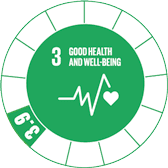
By 2030, substantially reduce the number of deaths and illnesses from water pollution and contamination.
Marine debris poses a direct hazard to all living creatures through entanglement and / or ingestion – this could be directly or indirectly. Through a commitment to accelerate marine debris removal and reporting through Dive Against Debris ®, PADI AWARE Foundation is encouraging the global dive community to make Every Dive A Survey Dive - helping to ensure that there is less debris in the marine environment posing a hazard to human health and wellbeing.
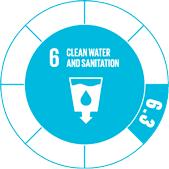
By 2030, improve water quality by reducing pollution, eliminating dumping and minimizing release of hazardous materials.
Marine debris items, particularly plastics, break up into smaller and smaller pieces of rubbish and have the ability to leach their toxic chemicals into the marine environment. Removing debris and working on solutions towards preventing marine debris will contribute to reducing pollution and minimizing the release of hazardous chemicals and materials.
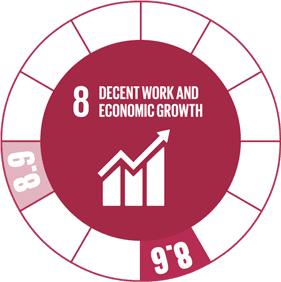
By 2020, substantially reduce the proportion of youth not in employment, education or training.
Collaborating with commercial ecotourism operators, PADI AWARE Foundation is assisting with the development and integration of local community training programs in order to provide key skills for continued employment within the global dive industry.
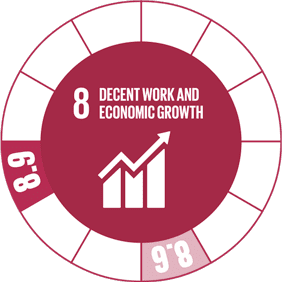
By 2030, devise and implement policies to promote sustainable tourism that creates jobs and promotes local culture and products.
The Responsible Shark and Ray Tourism: A Guide to Best Practice, developed in partnership with the Manta Trust and WWF, uses the best available science to help operators create specific guidelines appropriate to their local circumstances and shark and ray tourism experiences that are safe, sustainable and conservation-minded.
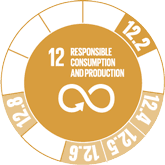
By 2030, achieve the sustainable management and efficient use of natural resources.
Effectively managing rubbish and improving legislation to prevent debris entering the ocean in the first place will assist in conserving marine environments and supporting ecosystem services.
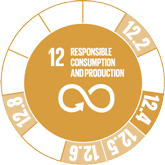
By 2020, achieve the environmentally sound management of chemicals and all wastes throughout their life cycle.
Through Dive Against Debris®, PADI AWARE Foundation has data regarding the types of debris items found in the marine environment as well as debris-free sites which can be used to highlight where management should be prioritized.
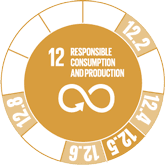
By 2030, substantially reduce waste generation through prevention, reduction, recycling and reuse.
Dive Against Debris® highlights the underwater marine debris issue. The data can be used to help inform necessary prevention measures and help to educate the community as to where individuals can reduce their waste footprint – Adopt A Dive Site™ encourages monthly removal and recording of marine debris. Debris-free sites are also reported. The data can then support local change. Through specific supply chain goals, PADI AWARE Foundation is also looking at ways in which to up-cycle (reuse) debris items.
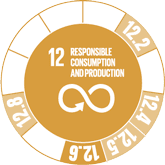
Encourage companies to adopt sustainable practices and to integrate sustainability information into their reporting cycle.
Through specific supply chain goals, PADI AWARE Foundation is committed to not buy or distribute any single-use plastic products or packaging in our operations. Products’ viability is determined based on a full Life Cycle Analysis, including adhering to ISO 1400 and SDG goals and principles. Additionally, PADI AWARE Foundation is committed to also work with countries to help them identify where they may need to focus their efforts based on what is reported through Dive Against Debris®.
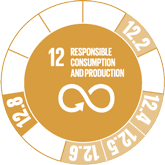
By 2030, ensure that people everywhere have the relevant information and awareness for sustainable development.
Countries can implement PADI AWARE Foundation’s courses and programs in order to actively raise awareness and ensure lifestyles are in harmony with nature.
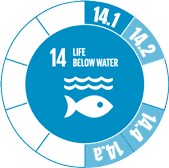
By 2025, prevent and significantly reduce marine pollution of all kinds.
PADI AWARE Foundation is committed to accelerating marine debris removal and reporting efforts through Dive Against Debris®. Our goal: Encourage the global dive community to make Every Dive a Survey Dive.
The data generated, including data from debris free sites, provides quantitative evidence to advance policies and legislation at national and international levels in order to prevent marine pollution.
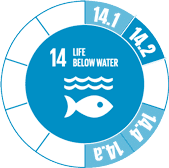
By 2020, sustainably manage and protect marine and coastal ecosystems to avoid significant adverse impacts.
Removing marine debris from the ocean will directly assist in strengthening ecosystem resilience as debris is no longer in the marine environment to smother habitats and kill / injure marine life.
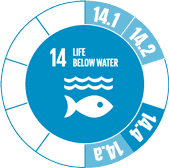
By 2020, effectively regulate harvesting and end overfishing.
Securing science-based shark and ray catch limits, strict protections for endangered species, and strong, enforceable bans on shark finning.
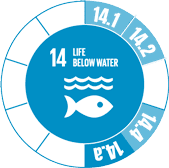
Increase scientific knowledge, develop research capacity and transfer marine technology.
Working with scientists and other stakeholders to highlight data generated through Dive Against Debris® as well as perform analyses to advance our knowledge and understanding regarding marine debris.
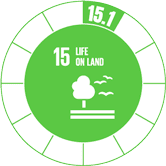
By 2020, ensure the conservation, restoration and sustainable use of terrestrial and inland freshwater ecosystems.
Rubbish compromises the restoration and sustainability of freshwater ecosystems. Dive Against Debris® yields data in these environments also – identifying types and quantities of debris items found and removed. Debris-free sites are also reported, in order to ensure and measure the conservation, restoration and sustainable use, baseline data is essential.
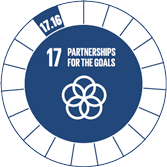
Enhance the global partnership for sustainable development, complemented by multi-stakeholder partnerships.
As an organization, PADI AWARE Foundation forges strategic multi-stakeholder partnerships. With regards to supporting countries in achieving this goal, PADI AWARE Foundation can form effective partnerships with governments and other relevant governing bodies.


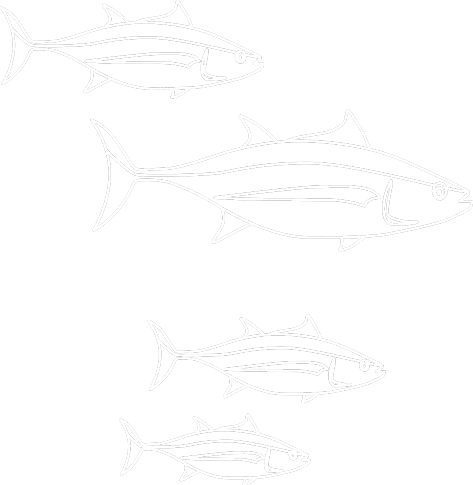
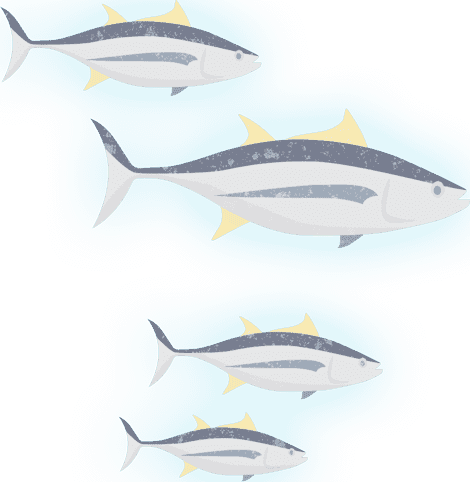

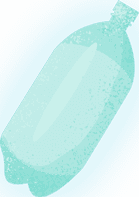






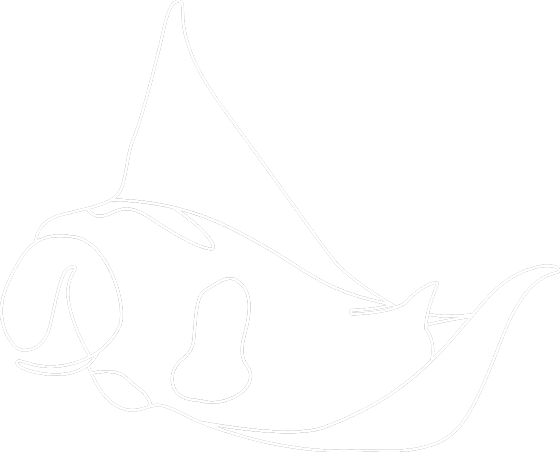
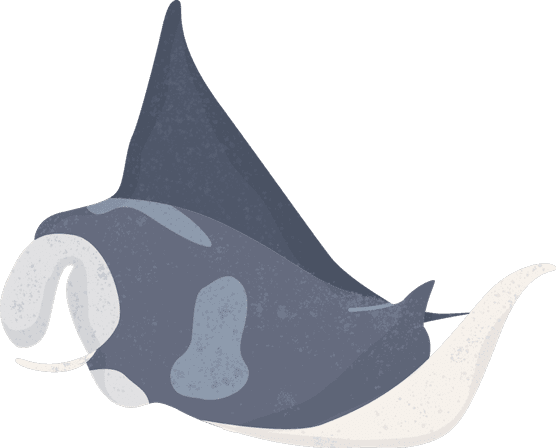








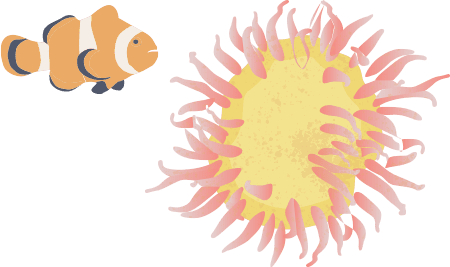


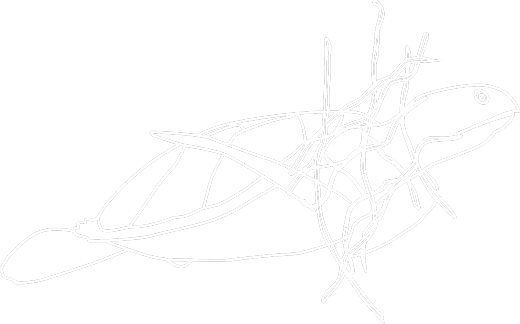
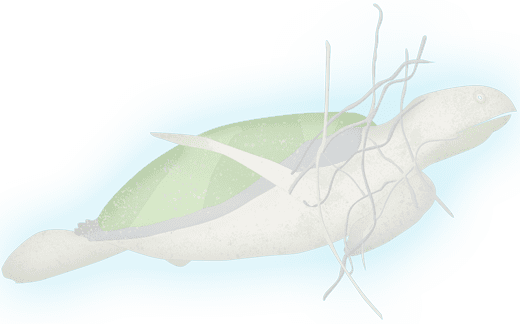

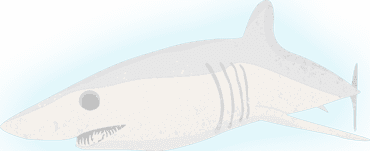

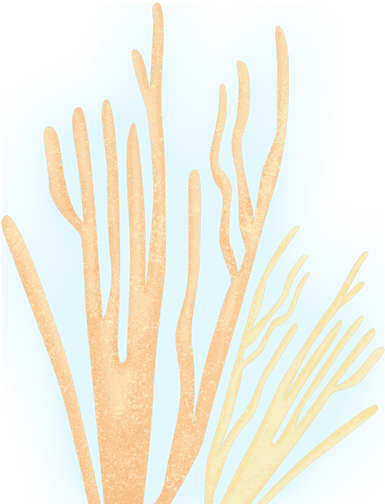

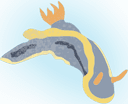














By 2030, end hunger and ensure access by all people.
Marine debris negatively impacts the health and functionality of ecosystems and thus can impair fish stocks which in turn, threatens food security.

By 2030, ensure sustainable food production systems and implement resilient agricultural practices.
By removing debris that has entered the marine environment, PADI AWARE Foundation is contributing to the overall improved health and resilience of ecosystems.
PADI AWARE Foundation is building an increasingly comprehensive GLOBAL dataset that can be used to help inform effective PREVENTION measures to stop further debris entering the ocean... and thus helping to reduce ecosystem degradation.

By 2030, substantially reduce the number of deaths and illnesses from water pollution and contamination.
Marine debris poses a direct hazard to all living creatures through entanglement and / or ingestion – this could be directly or indirectly. Through a commitment to accelerate marine debris removal and reporting through Dive Against Debris ®, PADI AWARE Foundation is encouraging the global dive community to make Every Dive A Survey Dive - helping to ensure that there is less debris in the marine environment posing a hazard to human health and wellbeing.

By 2030, improve water quality by reducing pollution, eliminating dumping and minimizing release of hazardous materials.
Marine debris items, particularly plastics, break up into smaller and smaller pieces of rubbish and have the ability to leach their toxic chemicals into the marine environment. Removing debris and working on solutions towards preventing marine debris will contribute to reducing pollution and minimizing the release of hazardous chemicals and materials.

By 2020, substantially reduce the proportion of youth not in employment, education or training.
Collaborating with commercial ecotourism operators, PADI AWARE Foundation is assisting with the development and integration of local community training programs in order to provide key skills for continued employment within the global dive industry.

By 2030, devise and implement policies to promote sustainable tourism that creates jobs and promotes local culture and products.
The Responsible Shark and Ray Tourism: A Guide to Best Practice, developed in partnership with the Manta Trust and WWF, uses the best available science to help operators create specific guidelines appropriate to their local circumstances and shark and ray tourism experiences that are safe, sustainable and conservation-minded.

By 2030, achieve the sustainable management and efficient use of natural resources.
Effectively managing rubbish and improving legislation to prevent debris entering the ocean in the first place will assist in conserving marine environments and supporting ecosystem services.

By 2020, achieve the environmentally sound management of chemicals and all wastes throughout their life cycle.
Through Dive Against Debris®, PADI AWARE Foundation has data regarding the types of debris items found in the marine environment as well as debris-free sites which can be used to highlight where management should be prioritized.

By 2030, substantially reduce waste generation through prevention, reduction, recycling and reuse.
Dive Against Debris® highlights the underwater marine debris issue. The data can be used to help inform necessary prevention measures and help to educate the community as to where individuals can reduce their waste footprint – Adopt A Dive Site™ encourages monthly removal and recording of marine debris. Debris-free sites are also reported. The data can then support local change. Through specific supply chain goals, PADI AWARE Foundation is also looking at ways in which to up-cycle (reuse) debris items.

Encourage companies to adopt sustainable practices and to integrate sustainability information into their reporting cycle.
Through specific supply chain goals, PADI AWARE Foundation is committed to not buy or distribute any single-use plastic products or packaging in our operations. Products’ viability is determined based on a full Life Cycle Analysis, including adhering to ISO 1400 and SDG goals and principles. Additionally, PADI AWARE Foundation is committed to also work with countries to help them identify where they may need to focus their efforts based on what is reported through Dive Against Debris®.

By 2030, ensure that people everywhere have the relevant information and awareness for sustainable development.
Countries can implement PADI AWARE Foundation’s courses and programs in order to actively raise awareness and ensure lifestyles are in harmony with nature.

By 2025, prevent and significantly reduce marine pollution of all kinds.
PADI AWARE Foundation is committed to accelerating marine debris removal and reporting efforts through Dive Against Debris®. Our goal: Encourage the global dive community to make Every Dive a Survey Dive.
The data generated, including data from debris free sites, provides quantitative evidence to advance policies and legislation at national and international levels in order to prevent marine pollution.

By 2020, sustainably manage and protect marine and coastal ecosystems to avoid significant adverse impacts.
Removing marine debris from the ocean will directly assist in strengthening ecosystem resilience as debris is no longer in the marine environment to smother habitats and kill / injure marine life.

By 2020, effectively regulate harvesting and end overfishing.
Securing science-based shark and ray catch limits, strict protections for endangered species, and strong, enforceable bans on shark finning.

Increase scientific knowledge, develop research capacity and transfer marine technology.
Working with scientists and other stakeholders to highlight data generated through Dive Against Debris® as well as perform analyses to advance our knowledge and understanding regarding marine debris.

By 2020, ensure the conservation, restoration and sustainable use of terrestrial and inland freshwater ecosystems.
Rubbish compromises the restoration and sustainability of freshwater ecosystems. Dive Against Debris® yields data in these environments also – identifying types and quantities of debris items found and removed. Debris-free sites are also reported, in order to ensure and measure the conservation, restoration and sustainable use, baseline data is essential.

Enhance the global partnership for sustainable development, complemented by multi-stakeholder partnerships.
As an organization, PADI AWARE Foundation forges strategic multi-stakeholder partnerships. With regards to supporting countries in achieving this goal, PADI AWARE Foundation can form effective partnerships with governments and other relevant governing bodies.